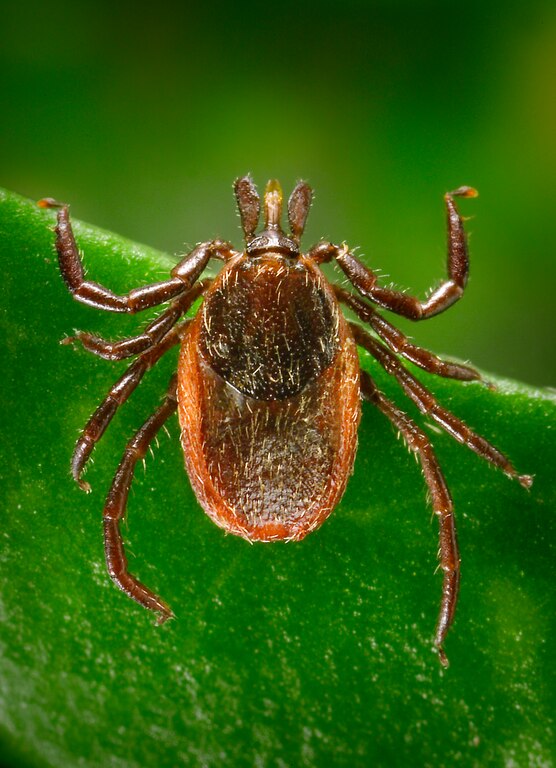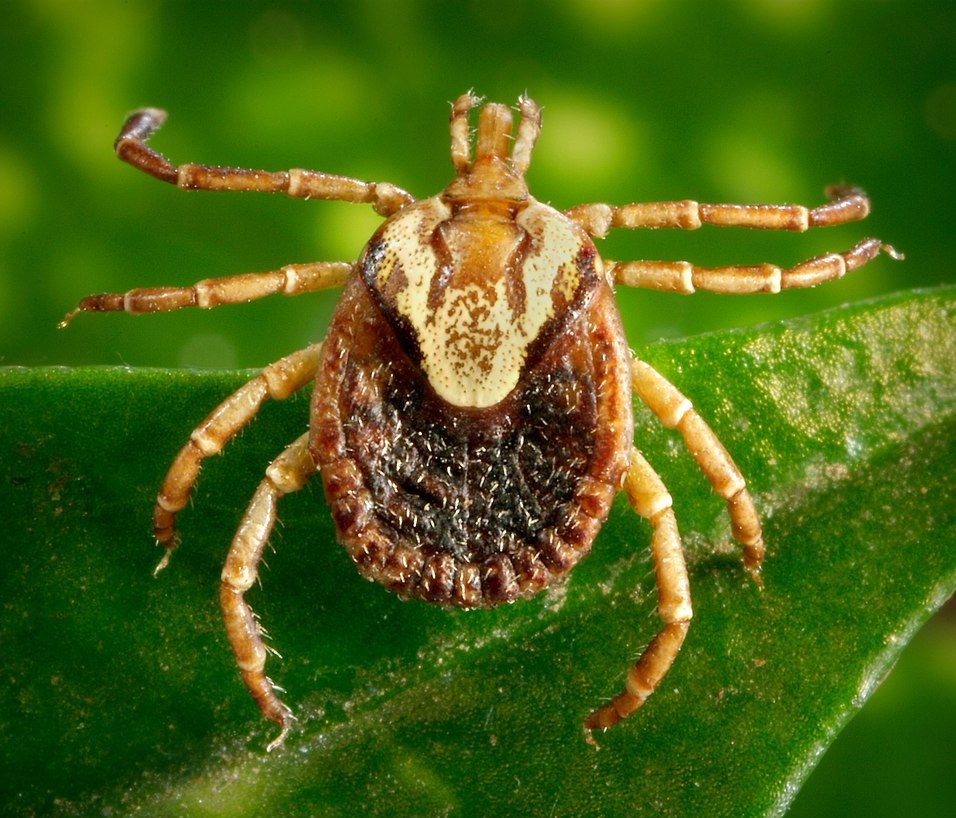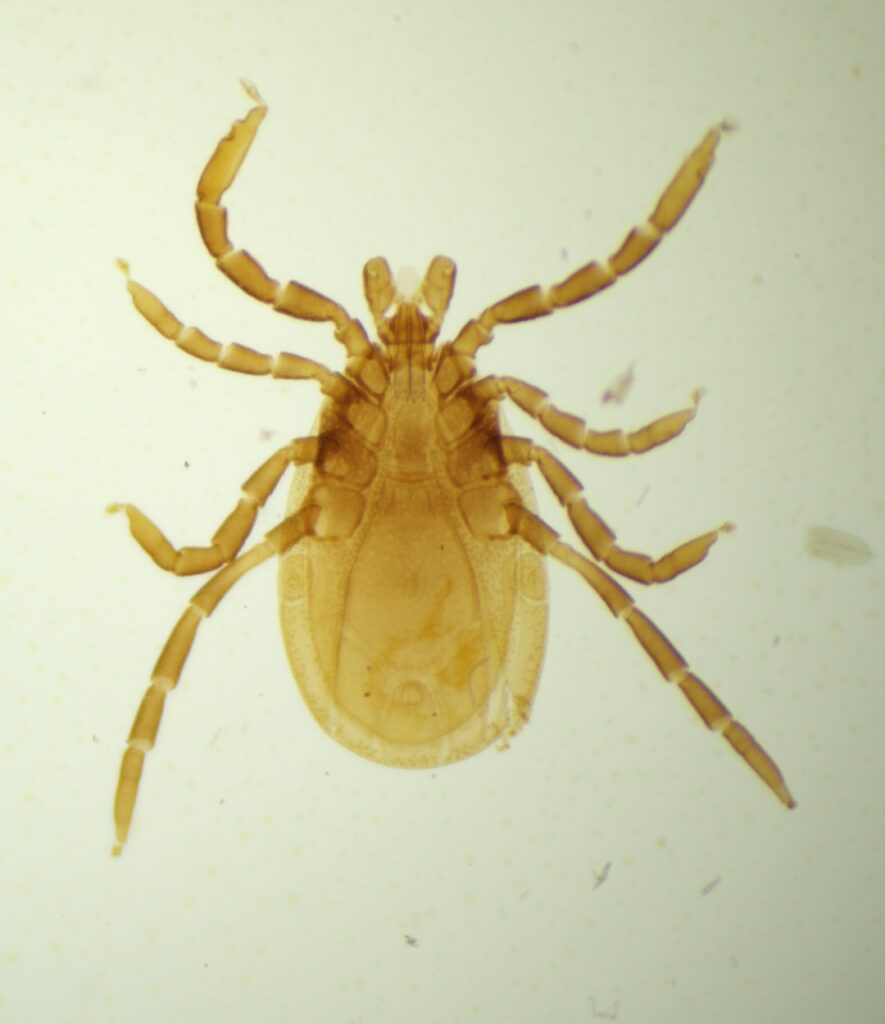Ixodes pacificus
The western black-legged tick is a vector for Lyme disease, which is caused by infection with Borrelia burgdorferi. After feeding on a host animal infected with the bacterium, the tick is then able to transmit it to other animals, including humans, through subsequent blood meals. The nymphal stage, and sometimes adult female ticks, are responsible for the majority of transmission events. Nymphal ticks primarily feed on small animals and humans during the spring and early summer, while adult ticks are most active during the winter and seek out hosts from late fall to spring.
Image from public domain.
| Sales Unit | Each |
|---|---|
| Origin | USA (CA) |
| Common Names | Western Black-Legged Tick |
| Quality | A1- |
| Preservation Option | Alcohol |
$10.00




